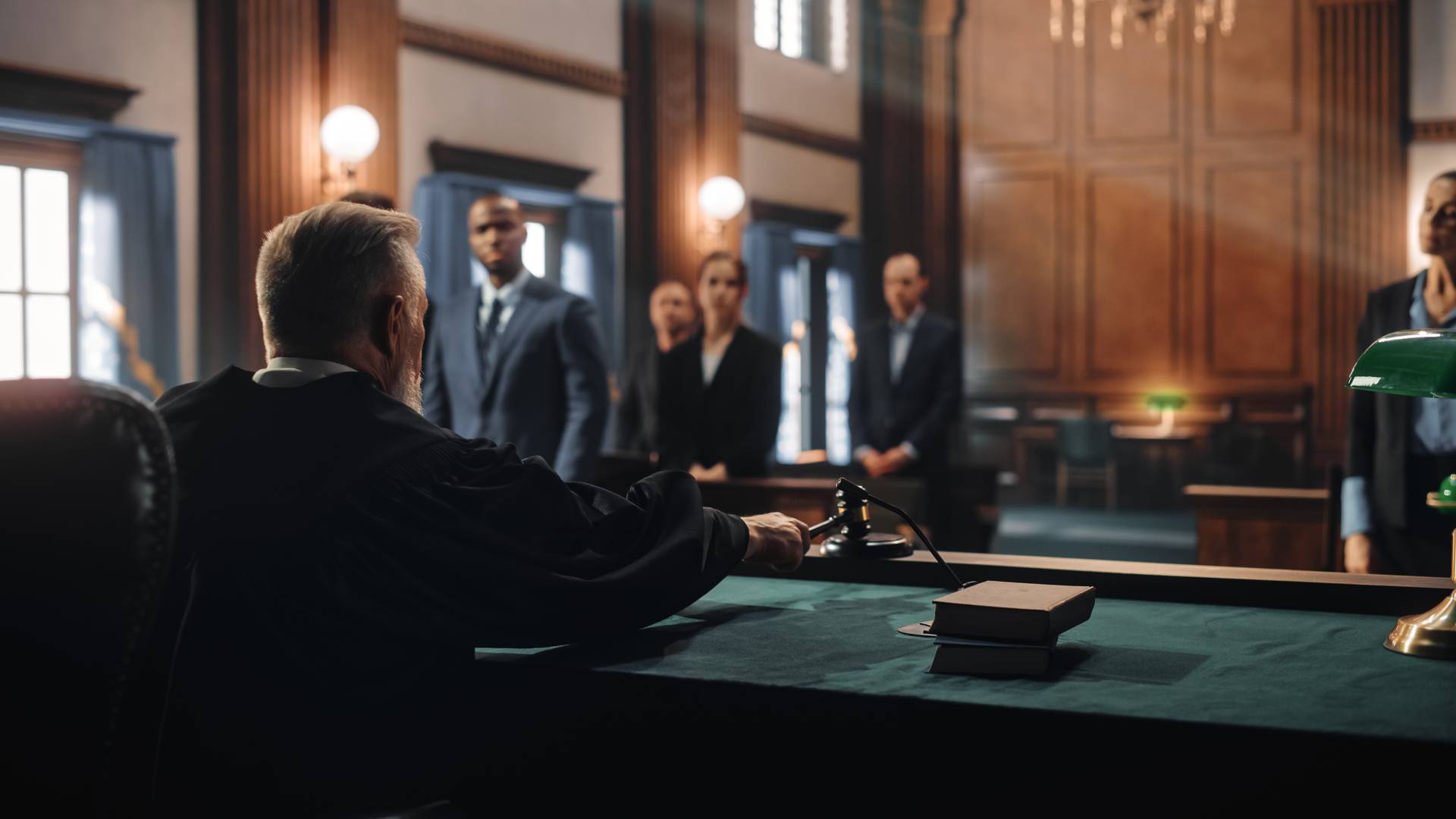
Kentucky Theft Defense Lawyer
Maybe it seemed like a good idea at the time, or perhaps you were simply in the wrong place at the wrong time. Whatever the circumstances, being accused of theft is serious business. If you or someone you love has been arrested on suspicion of stealing, call William M. Butler, Jr., a theft attorney.
Kentucky theft attorney William Butler has dedicated his legal career to fighting for the rights of the accused. For over 35 years, he has successfully defended thousands of clients, compiling an impressive record of positive results, and he can help you too. If you have been accused of any type of theft, Mr. Butler is ready to listen to your side of the story, explain your options, and go to work on your defense.
For more information, please see his Case Results and Testimonials.
To schedule a free initial consultation with a theft attorney in Kentucky, call (502) 237-0871 or contact William Butler’s law firm via email.
Types of Theft Cases We Handle in Kentucky
William Butler has extensive experience defending clients against all kinds of theft charges, such as:
- Petty theft: Petty theft, or misdemeanor theft, involves the unlawful taking of property or services that have a relatively low value.
- Grand theft: When the stolen property exceeds $500 in value, the crime is classified as grand theft.
- Shoplifting: Shoplifting involves stealing merchandise from a store. In Kentucky, the penalty for shoplifting varies based on the value of the stolen goods.
- Identity theft: including the defense of those accused of online identity theft.
- Credit card theft: whether online or through the physical taking of a credit card.
- Grand theft auto: This is not a charge in Kentucky, but it is commonly used when referring to Felony Theft: theft over a certain dollar amount.
- Burglary: Defined as entering a dwelling (like a home or business) with the intent to commit a crime. Even if you do not actually take anything, you could still be found guilty.
- Robbery: This is theft by threat or force. It includes mugging, bank robbery, and store holdups. Mr. Butler also handles cases that involve weapons charges.
- Embezzlement: this is a theft from an institution such as a bank; theft of funds from a company, etc.
As your dedicated legal representation in theft cases, we take the time to understand the nuances of your situation and craft a personalized defense strategy. Whether the allegations involve complex financial transactions or straightforward property disputes, our goal is not only to secure the best possible outcome but also to mitigate any potential long-term consequences of the charges. Our strategic approach includes meticulous examination of evidence and proactive negotiation with the prosecution to ensure a fair and just resolution.
How Kentucky Theft Laws Work
Kentucky's theft laws are designed to penalize those who unlawfully take another person’s property, with punishment increasing depending on the severity of the theft. The primary factors that influence theft charges include:
- Value of the Property: The more valuable the stolen property, the more serious the charge. Property worth less than $500 is generally considered a misdemeanor, while property worth more than $500 typically leads to felony charges.
- Intent to Deprive: To be convicted of theft in Kentucky, the prosecution must prove that you had the intent to permanently deprive the owner of their property.
- Prior Criminal History: A defendant’s criminal history can influence sentencing. Those with prior theft convictions may face enhanced penalties.
- Use of Force or Weapons: If a theft involves violence, the charge may be escalated to a more severe offense, such as robbery or armed burglary.
- Aggravating Factors: The presence of aggravating factors, such as a theft involving a weapon or an elderly victim, can lead to enhanced penalties. If the theft is committed in a particularly reckless or violent manner, you could face more serious charges.
Penalties for Theft in Kentucky
The penalties for theft in Kentucky vary significantly depending on the offense's severity. Here is an overview of potential penalties for various theft crimes:
- Petty Theft: For theft under $500, the offense is generally a Class A misdemeanor. A conviction may result in up to one year in jail, fines, and restitution.
- Grand Theft: Theft of property worth over $500 is classified as a Class D felony, punishable by up to five years in prison and substantial fines. If the value exceeds $1,000, the charge may escalate to a Class C felony, with a prison sentence of 5 to 10 years.
- Burglary: Depending on the degree, burglary can carry penalties ranging from 1 year to life imprisonment.
- Shoplifting: Penalties for shoplifting can include fines, jail time, and even civil penalties from the store.
- Fraud: Fraud and theft by deception are often treated as serious felonies, and convicted individuals can face significant prison time, fines, and restitution.
In addition to these legal consequences, a theft conviction can have repercussions extending beyond imprisonment and fines. It can impact professional opportunities, result in loss of certain civil rights, and tarnish personal reputation. Legal representation can provide guidance in navigating these challenges, ensuring a detailed understanding of each case's unique circumstances to advocate for either charge reduction or alternative sentencing options.
When Theft Becomes a Felony in KY
In Kentucky, theft can be classified as a felony if the value of the stolen property exceeds a certain threshold or if the crime involves specific circumstances. Here's a breakdown of theft charges in Kentucky based on the severity:
When theft becomes a felony in Kentucky:
- Theft of Property Valued Over $500: If the stolen property is valued at more than $500, the crime is considered grand theft and can be classified as a Class D felony. This can lead to a prison sentence of 1 to 5 years.
- Theft of Property Valued Over $1,000: If the value of the stolen property exceeds $1,000, the charge may escalate to a Class C felony, which carries penalties of 5 to 10 years in prison.
- Theft of Property Valued Over $10,000: When the stolen property exceeds $10,000 in value, the theft may be charged as a Class B felony, punishable by 10 to 20 years in prison.
- Theft of Firearms or Specific Items: Certain types of property, like firearms, can automatically elevate a theft charge to a felony, regardless of the value of the property.
- Burglary or Other Aggravated Theft Offenses: If theft occurs during the commission of a burglary (i.e., breaking into a structure to commit theft) or involves the use of force, weapons, or harm to a victim, the theft may be treated as an aggravated felony, carrying more severe penalties.
What to Do If You’re Accused of Theft
If you are under investigation or have been charged with a theft-related offense, there are steps you should take immediately:
- Do not speak to police or store security without a lawyer present.
- Do not return to the scene or attempt to contact the alleged victim.
- Preserve any documents, receipts, or text messages that may support your version of events.
- Contact a criminal defense attorney right away.
An experienced Kentucky theft attorney can intervene early, prevent unnecessary escalation, and begin building a strong defense from day one.
How to Defend Against Theft Charges in Kentucky
If you are facing theft charges in Kentucky, there are several defenses that could help challenge the allegations. A key defense is the lack of intent, as the prosecution must prove that the accused intended to permanently deprive the owner of their property. If the theft was unintentional, such as taking something by mistake, or if you intended to return the item, this can be a valid defense. False accusations, insufficient evidence, and consent are also common defenses. If you were falsely identified or there is no solid evidence linking you to the crime, the charges may be dismissed. Additionally, if you had permission to take the property or were unaware it was stolen, these defenses could also be used to counter the theft charge.
Other defense strategies include presenting an alibi to show you were not at the scene of the crime, arguing entrapment if law enforcement encouraged you to commit the crime, or challenging an illegal search and seizure if evidence was improperly obtained. In some cases, negotiating a plea deal may be beneficial, allowing for reduced charges or alternative sentencing. Additionally, the statute of limitations for most theft offenses in Kentucky is 5 years, meaning charges may be dismissed if too much time has passed since the alleged crime. Working with an experienced theft lawyer in Louisville, like William M. Butler, Jr., can help you evaluate your options and determine the best strategy to protect your rights and achieve the best possible outcome in your case.
Consulting an Experienced Theft Attorney in Kentucky
Though theft crimes may seem minor, you should understand that a conviction for any theft crime could have long-lasting consequences. For example, it will appear on your criminal record and may prevent you from getting the job you want.
William Butler understands the seriousness of these crimes, and he is ready to aggressively defend your rights. He has skillfully defended thousands of clients, for over 35 years, compiling an impressive record of positive results, and he can defend you too.
If you have been arrested on any type of theft charge, do not hesitate to seek the help of a proven attorney, William M. Butler, Jr., by calling (502) 237-0871 today, or contacting him via email to schedule your initial confidential consultation.
YOUR CRIMINAL DEFENSE LAWYER
- With over 35 years of experience defending clients
- Who is confident and proficient in trial
- Who speaks your language and the language of prosecutors

Hear From Our Happy Clients
"EXCEPTIONAL Lawyer"